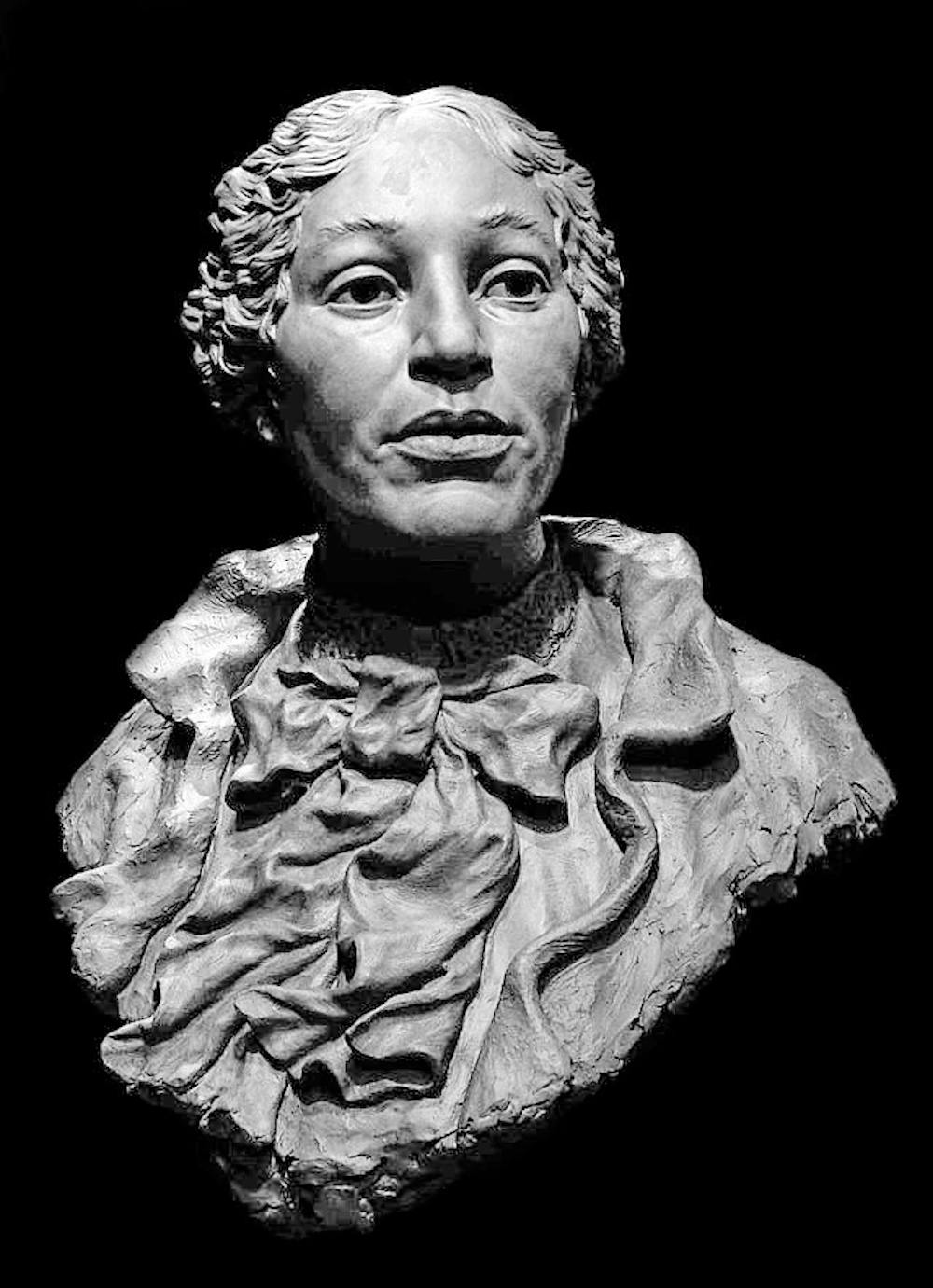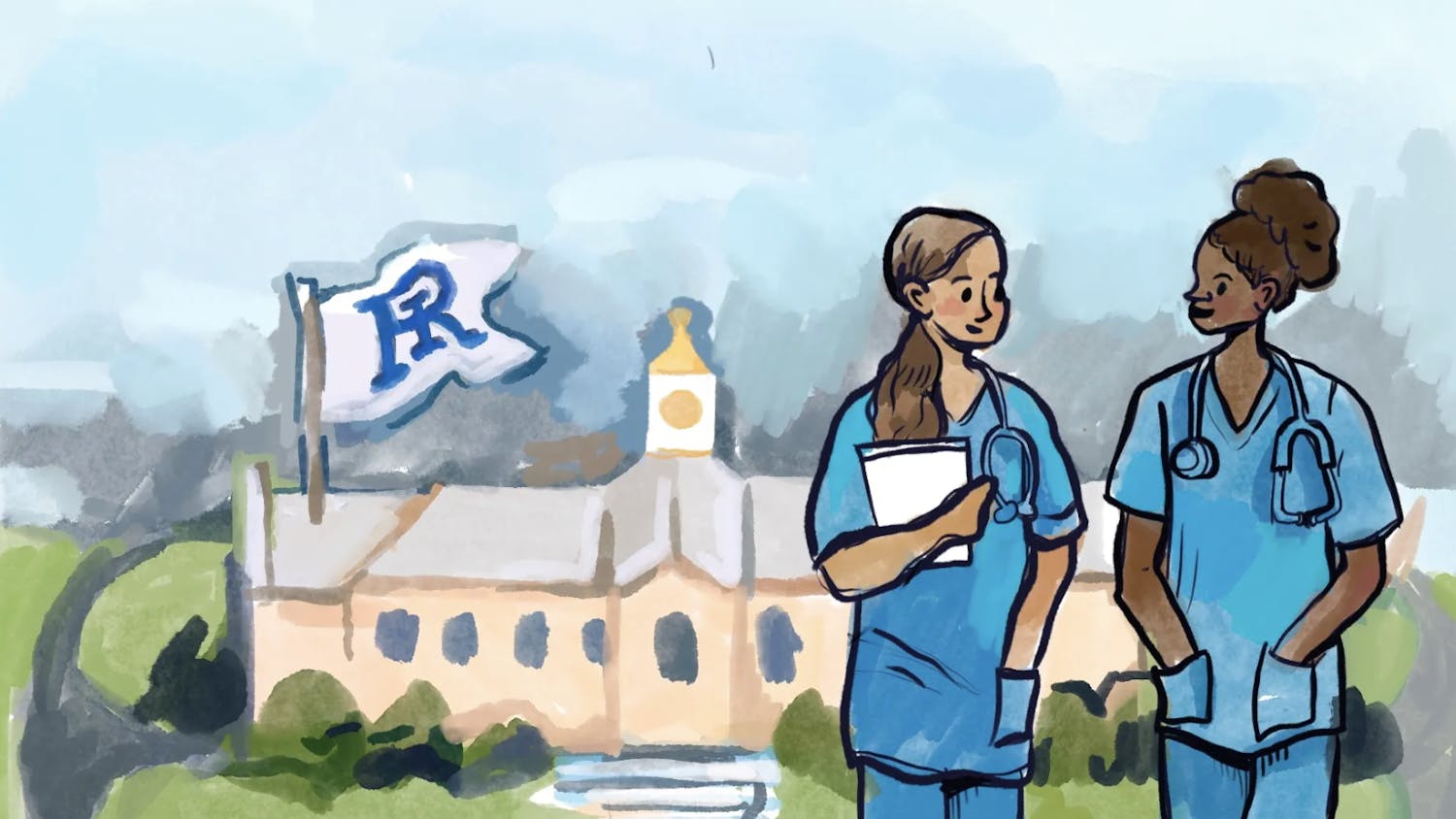At 93 Benevolent Street sits a house with brown and green wood siding and maroon-painted frames. The house, restored by the University under Ruth Simmons’ administration and now occupied by a family through the Brown to Brown Home Ownership program, was once home to renowned artist Edward Bannister and his wife Christiana Carteaux Bannister, a prominent hair doctress, abolitionist and philanthropist.
Christiana Bannister was “an extraordinary woman,” said Ray Rickman, co-founder and executive director of Stages of Freedom, a nonprofit organization and heritage museum that works to promote African American history and youth empowerment.
Stages of Freedom is planning to unveil a statue of Edward Bannister Sept. 10 in collaboration with the Providence Art Club — which he co-founded — along with a plaque honoring Christiana Bannister Sept. 16. The bronze statue will be unveiled at Market Square on the Providence River, wrote Nancy Gaucher-Thomas, former president of the Art Club and co-chair of the Bannister Community Art Project, in an email to The Herald.
From hat maker to Madame Bannister
Christiana Bannister was born in 1819 or 1820 to a mixed African American-Narragansett family in North Kingstown, according to a November 2001 “Rhode Island History” publication from the Rhode Island Historical Society. She grew up at a time when both Black and Native American communities faced significant challenges to their freedom.
Christiana Bannister was listed as a milliner — a maker of women’s hats — in the 1846-47 Boston Directory, her “first appearance in the printed record,” according to the publication. By 1853, she was listed as a hairdresser and ran her own salon.
Edward Bannister — who was born in Canada, likely in the late 1820s — came to Boston around 1850. He hoped to become an artist, but after facing difficulties finding employment, he pivoted to work as a hairdresser with Christiana Bannister — known then as Madame Carteaux — and the two married in 1857, according to the RIHS.
Christiana Bannister established herself as a “hair doctress,” providing care for “the various diseases incidental to the hair and scalp,” according to an advertisement in the “Liberator.” By 1859, her business success allowed Edward Bannister to pursue art full-time. The couple was also “deeply involved in the abolitionist community,” according to the RIHS. They moved to Providence in 1869. Shortly after, Christiana Bannister opened a salon downtown and her husband’s “artistic career thrived.”
Between 1876 to 1883. Edward Bannister co-founded the Providence Art Club and won prizes at art exhibitions throughout the northeast, including the top prize at the 1876 Philadelphia Centennial Exposition, an award which the judges wanted to “reconsider” after finding out Bannister was Black, according to the Smithsonian American Art Museum.
According to Stages of Freedom Co-Founder and Program Director Robb Dimmick, Christiana Bannister used her wealth not only to buoy her husband’s career as an artist but also to support the 54th Massachusetts Infantry Regiment — a unit made up of Black soldiers during the Civil War — and assist abolition efforts.
“She was a staunch abolitionist … (and) we know her vast concern for her own community” through her work in founding the Home for Aged Colored Women, which provided a space for elderly Black women who were not allowed into other nursing homes because of segregation, Dimmick said.
For Theresa Guzmán Stokes, executive director of the Rhode Island Black Heritage Society, Christiana Bannister had a talent of getting “people to take notice of the needs of the community,” said Guzmán Stokes. “When we look back, we don’t often credit women … with that kind of power.”
“I would have made out very poorly had it not been for her,” Edward Bannister said of his wife, according to the RIHS.
Highlighting the Bannisters in Providence
The coming installation of a statue and plaque “is celebratory,” Rickman said. “It’s an accomplishment on Stages of Freedom’s part to elevate (Christiana Bannister) in every chance we get.”
Rickman previously advocated for the renaming of what is now Bannister St., which was previously named for an enslaver. During his tenure as Deputy Secretary of State, he also pushed to have an image of Christiana Bannister included in the Rhode Island State House.
According to Dimmick, Rickman raised the funds necessary and found an artist to create a bust of Christiana Bannister, a project that “was so important” because “all the iconography, paintings (and) statues” in the building were of men.
The goal of the upcoming plaque is to give the Bannisters more visibility and show “how extraordinarily influential they were in making Providence a creative capital,” he added.
In the statue to be unveiled in September, “Edward Bannister will be seated on a bench with sketchbook in hand as he welcomes onlookers to sit beside him,” Gaucher-Thomas wrote. “A plaque with a QR code will share his life’s story.”
For this project, the Art Club is collaborating with a number of organizations — including R.I. Black Storytellers, Stages of Freedom and the R.I. Black Heritage Society — with the goal of creating “a broader platform for community engagement to promote Bannister’s legacy,” she added.
While Edward Bannister is known in the art world, Christiana Bannister has not yet attained recognition reflective of their influence, Guzmán Stokes said. “That is something that all of us who work in this field are trying to remedy.”
Guzmán Stokes hopes for more scholarship regarding Christiana Bannister and her early life, as “diversity in historical representation is mostly about scholarship.”
But diversity also “boils down to funding … (and) support,” Guzmán Stokes said. “We’re still at a time where African heritage organizations aren’t getting the same level of recognition” as organizations associated with being “more important or prestigious.”
“There really has to be more support and recognition for Black organizations,” she added. “That’s how true diversity happens — when everyone is on an equal platform.”

Rhea Rasquinha is a Metro editor covering development and infrastructure. She also serves as the co-chief of illustrations. She previously covered College Hill, Fox Point and the Jewelry District. Rhea is a senior from New York studying Biomedical Engineering.





